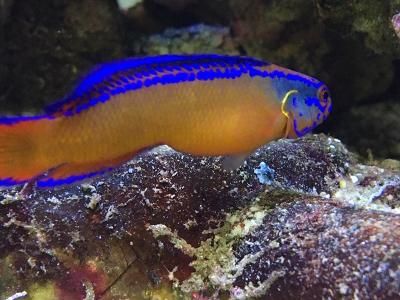- Joined
- Dec 28, 2016
- Messages
- 22,829
- Reaction score
- 21,964
This is my point - but you said it much more concisely. When I read "all" - I take it for what was said "all" - which to my thinking is impossible. I personally (perhaps I'm stupid) - don't get terms like 'immune tank' because there is no such thing that makes sense.Part of the confusion exists because of posts like the one I quoted below where you state your fish only die of old age. Other posts on the various forums state your fish never die from ich etc. maybe these statements are said tongue in cheek and you really mean “your old fish” or “most” but many people read the word “all” and assume all the fish in your tank, even new fish, are immune to ich or will fight it off. I’ve followed enough of your posts on the various forums over the years to know that some of your fish do indeed die from these parasites but you never have a total tank wipeout like many new reefers experience.




















